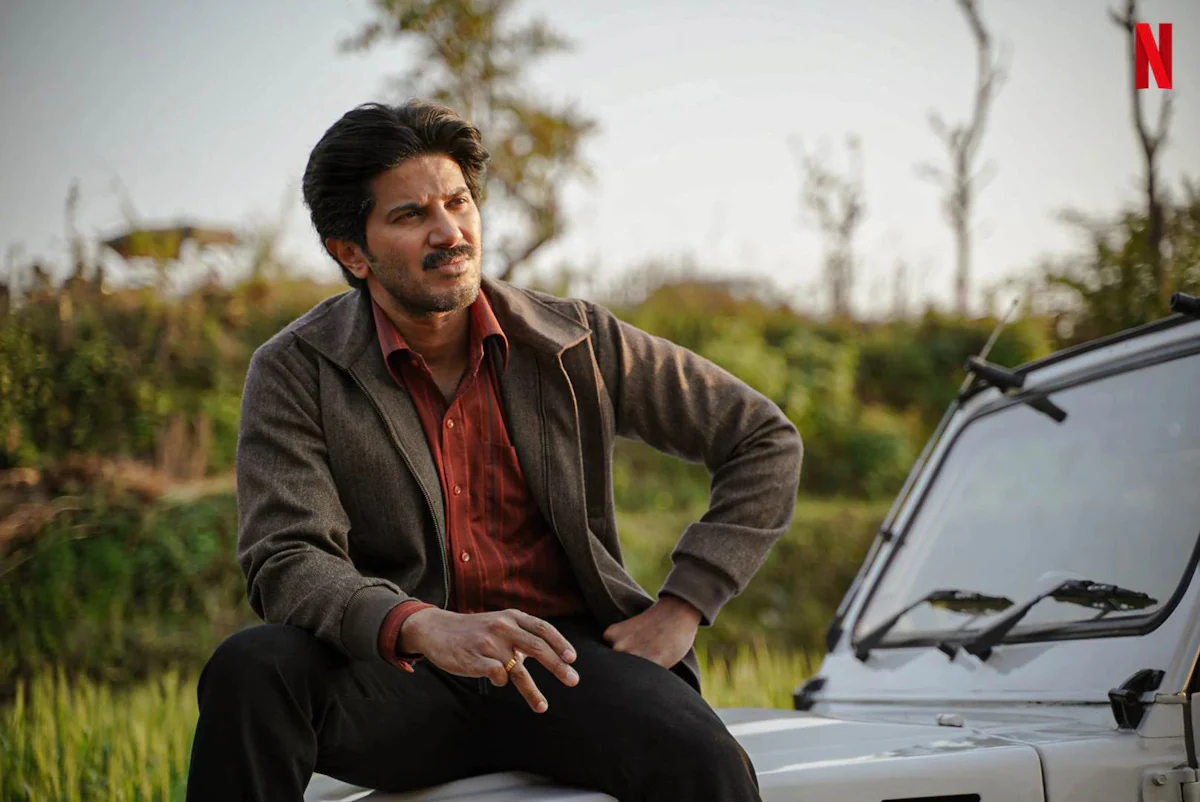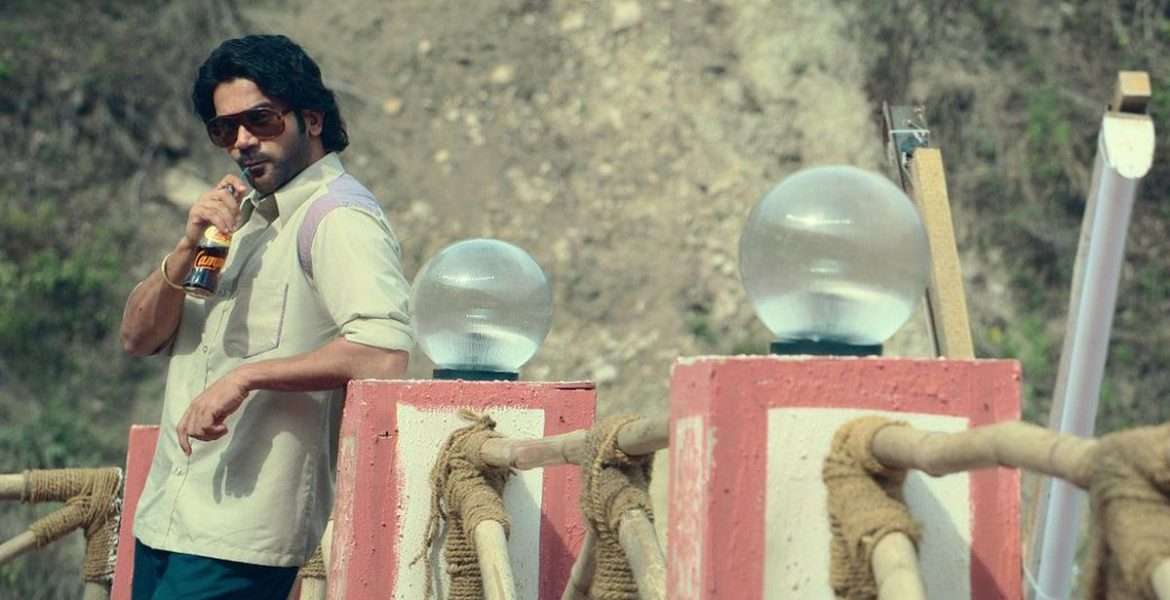The Coexistence of Love and Violence in ‘Guns & Gulaabs’: Love and Violence are the two most essential ingredients of any Bollywood series or film for centuries. Bollywood or Indian mainstream cinema has consumerized love and violence to such an extent that a movie or series devoid of these two things seems incomplete and doesn’t go down well with the audience. Films always pave the way for us to a parallel universe where we can achieve the impossible and fulfill our unfulfilled dreams by witnessing the victories of the heroes or heroines in the films. A quintessential aspect of most Bollywood movies or series is the dichotomy between good and evil, a battle between the protagonist and an antagonist.
Recommended Read: How ‘Rocky Aur Rani Ki Prem Kahani’ Exudes Typical Grandiose of KJo’s Films While Subverting Societal Stereotypes
However, in “Guns & Gulaabs,” Raj and DK blur the lines of this distinguishment between hero and villain, depicting that all human beings are heroes and villains in their own stories. As humans, we all carry the binary of good and evil within us, reminiscing the primary theme of William Golding’s novel “Lord of the Flies”: “Maybe there’s a beast..maybe it’s us”. In Gulaabgunj, children aren’t innocent and are very similar to the children we find in Golding’s novel. They try to behave like adults due to their troubled milieu and upbringing. Raj and DK, along with the makers of this series, perfectly explicate these themes throughout the seven episodes of the series.
The first episode, “Har Insaan Mein Hai Shaitaan,” plays a crucial role in setting the series’ tone. The plot of the series is nothing new. Like Gangs of Wasseypur, Mirzapur, the story revolves around the conflict and gang war between two neighboring villages, Gulaabgunj and Sherpur, over an opium deal that would earn them a great fortune but has its own share of perils. There are many characters in the series, each exuding shades of black and white and embarking on different journeys to fulfill their quest.
The Bloody Rivalry
The titular characters of the series are Ganchi (Satish Kaushik) and Nabeed, the druglords of Gulaabgunj and Sherpur. Their story of friends becoming enemies echoes the equation shared between Tripathis and Sharmas from Mirzapur. The other titular characters are Tipu Tiger (Rajkummar Rao), a hopelessly romantic mechanic who falls in love with a local English teacher, Chandralekha (TJ Bhanu). In addition to that, he is also the son of Babu Tiger, the tiger of Gulaabgunj who was a loyal worker of Ganchi and was killed by a contract killer named Atmaram (who is considered to be invincible), appointed by his enemy Nabeed.
Then there is Arjun Verma (Dulquer Salman), a narcotics police officer who hails from Delhi to clean up the mess of this dark world, and lastly, Jugnu (Adarsh Gourav), Ganchi’s son who goes out of his way to prove himself worthy in front of his father’s eyes. Unrest arises in Gulaabgunj and Sherpur over an opium deal with Ganchi and Sukanto, a mediator of a powerful drug lord from Kolkata, followed by Ganchi’s sudden accident leading to his coma.
The enemies grapple with this opportunity to enhance their power and control in order to establish their authority. In the subplot, love blooms between different characters in the series, and on certain occasions, love even turns into obsession. In fact, all the characters in the series are either driven by either or violence that gradually leads them towards confrontations.
Revenge as Catharsis
The series’ titular characters are on their quest to avenge their enemies. While Tipu wants to avenge Atmaram, who killed his best friend Sunil and his father, Nabeed wants revenge on Ganchi for ruining him and his business. Jugnu, Ganchi’s son, desires vengeance upon Nabeed, their arch-enemy and prime hindrance in his opium deal with Sukanto.
Arjun Verma, a protector of law and order trapped in the mistakes of his past, tries hard to redeem himself from the guilt by devising a master plan to avenge both the Ganchi and Nabeed’s gang, joining hands with Sukanto by offering him a better deal than both the gangs. It’s like a cycle in which all the characters are entrapped like the victims of a rigged system. Only after fulfilling their revenge do they experience a catharsis that ironically prompts their downfall.
Dysfunctional families inciting violence

From the beginning, we witness Tipu’s cold indifference toward his father. He doesn’t even shed a tear at his father’s funeral because he fears becoming a monster like his father. He and his father didn’t share a bond of warmth, unlike the one between Chandralekha and her father. Instead, it was a bond of terror. On the other hand, Jugnu was never accepted by his father. He didn’t exude the traits of toxic masculinity and was therefore always considered incapable and effeminate by his father, Ganchi, which makes him resort to violence in the end.
Gangaram, who develops a ridiculous obsession with his teacher and catcalls Jyotshna (Arjun’s daughter), is later found to be hailing from a broken family where his father shrugs off his responsibilities as his guardian seeking refuge in alcohol. In a particular sequence, we find Atmaram (Gulshan Devaiah) narrating a bitter memory of his childhood, revealing that he was a victim of child abuse. The lines between predestination and free will are blurred in the series. No matter how hard Tipu tried, he couldn’t refrain from following his father’s footsteps due to his circumstances. On the other hand, Jugnu and Atmaram deliberately choose the path of violence to accomplish their missions.
Family plays an inherent role in the rearing of a child. Their lives would have been different if Atmaram, Jugnu, and Tipu had been nourished with proper love and care since childhood. Still, Gangaram, being a kid, is lucky to have Chandralekha as his guide, who understands his predicament and helps him change himself before it gets too late.
Subversion of societal stereotypes
There are precisely two sequences in the series where societal stereotypes are subverted. The first sequence is a conversation between Jugnu and Mahendra (Vipin Sharma), a trustworthy accomplice of Ganchi. Mahendra says Ganchi desperately longed for a male heir. After several failed attempts to produce one, he planned on passing his inheritance to Nabeed until Jugnu’s birth which changed everything between Ganchi and Nabeed. Ganchi never considered his daughters his legal heirs to run his business.
Jugnu questions this belief steeped in patriarchy, stating why a daughter is considered incapable when she should be regarded as an equal. This entire conversation symbolizes Jugnu’s identity crisis and anticipates his coming out at the end. The second sequence is again that of a conversation between Gangaram and Chandralekha where Gangaram repents in front of Chandralekha for his misdeeds, and Chandralekha advises him to cry his heart out even if he is a boy because crying isn’t a symbol of cowardice. It’s an act of strength to embrace one’s feelings and flaws instead of denying them.
Tribute to the 90s world and music
The series is set in the 90s world of crime and violence and pays tribute to the aesthetics of the 90s cinematic world, starting from coca cola advertisements, vintage TV sets, and calendars. The makers of the show also pay tribute to classic Bollywood and Occidental songs ranging from Shailendra’s “Hoga Tumse Pyara Kaun,” Kumar Sanu’s “Jaab Koi Baat Bigad Jaye” to Bryan Adams’s “Everything I Do, I do it for you,” (the name of the second episode is based on this song).
Rose and Tiger are depicted as symbols of love and courage, and in the series, love, in a way, incites violence, which is evident in Tipu’s decision to change the rose tattooed on his wrist to that of a tiger. The title of the series is inspired by Guns N’ Roses, an American rock band, and the title itself suggests a blend of love and violence with humor that shapes the entire narrative.
Final Thoughts:
Raj and DK presents a dark comedy thriller full of twists and turns and does it brilliantly. The screenplay and cinematography are intriguing, generating enough curiosity in the audience regarding the fate of the characters. The series deals with a lot of subplots along with the main plot but merges it all together in the end, emanating the themes of love and violence, challenging our notions of good and evil making us realize that we cannot categorize someone as good or bad, as everyone has their own set of reasons in justifying their actions.
However, no one is spared from the consequences of their deeds. Confession doesn’t necessarily bring redemption. Instead, at times, it burdens the person we confide to shrug off our guilt, as Yamini states in her conversation with Arjun when he decides to confess his adultery to his wife to come clean. In fact, we must live with the repercussions of our actions, whether good or bad and sometimes even redemption eludes us.


